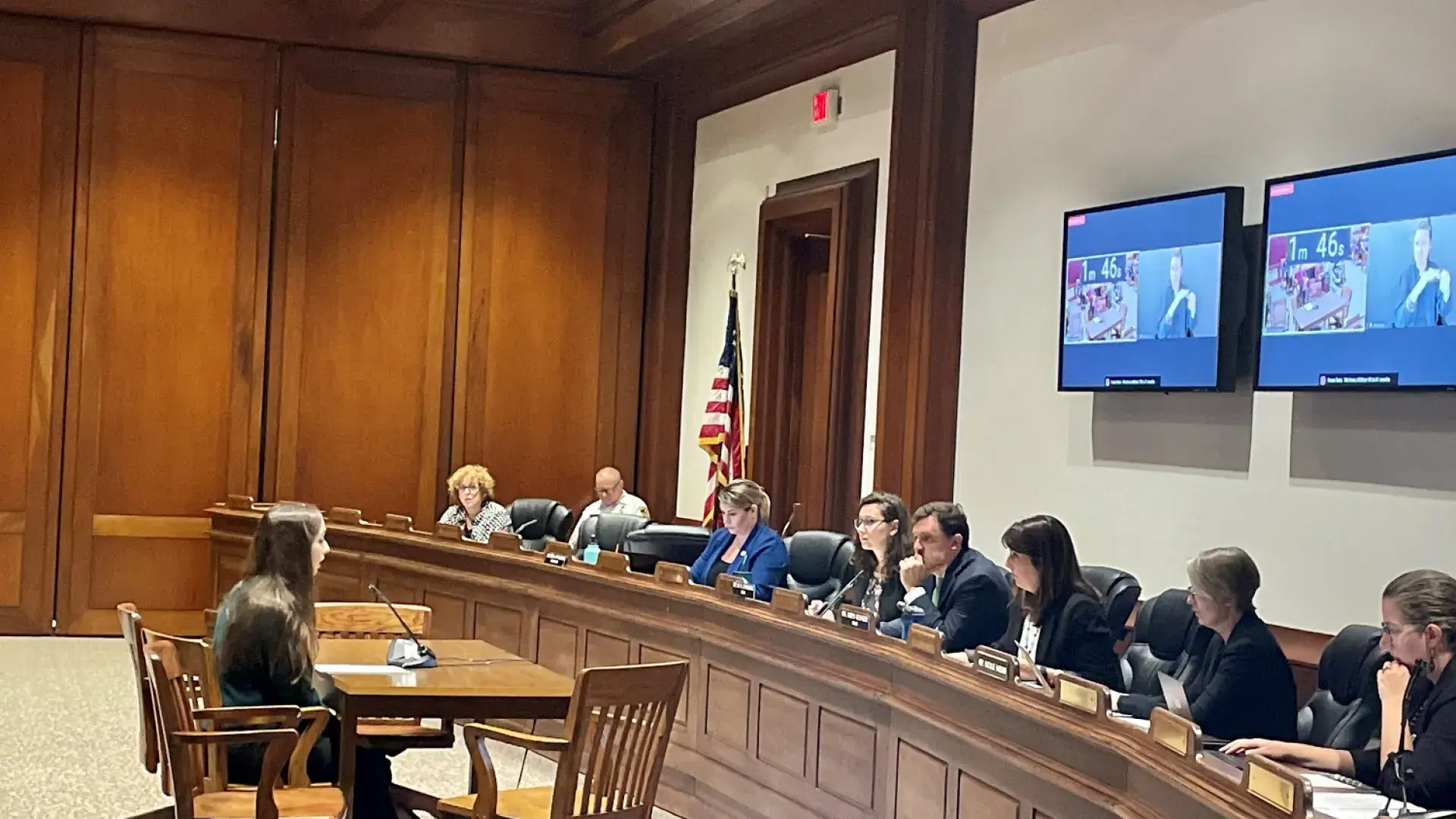
Occupational Therapy Instructor Dr. Mary O’Donnell testifies at Massachusetts Statehouse for improving services to improve their lives.
On a humid Tuesday morning earlier this month, Dr. Mary O’Donnell sat down at a table inside the Massachusetts State House.
O’Donnell, an instructor of Occupational Therapy at the Institute, was there to testify before the Legislature’s Joint Committee on Children, Families, and Persons with Disabilities on behalf of Bill H.147, “An Act Providing Immediate Childcare Assistance to Homeless Families,” which would provide automatic childcare assistance and access to early intervention services to homeless families by the Department of Public Health.
As an occupational therapist at the Spaulding Outpatient Center for Children in Lexington, O'Donnell's research focuses on advocacy and policy to improve access to early intervention services for young children experiencing homelessness, O’Donnell told the legislators how early intervention for young children can help mitigate long-standing problems that include reducing healthcare spending, decreasing the strain on public school special education departments, and providing equitable access to health-promoting, family-centered, and federally mandated services – challenges she said were worsened by the Covid-19 pandemic.

